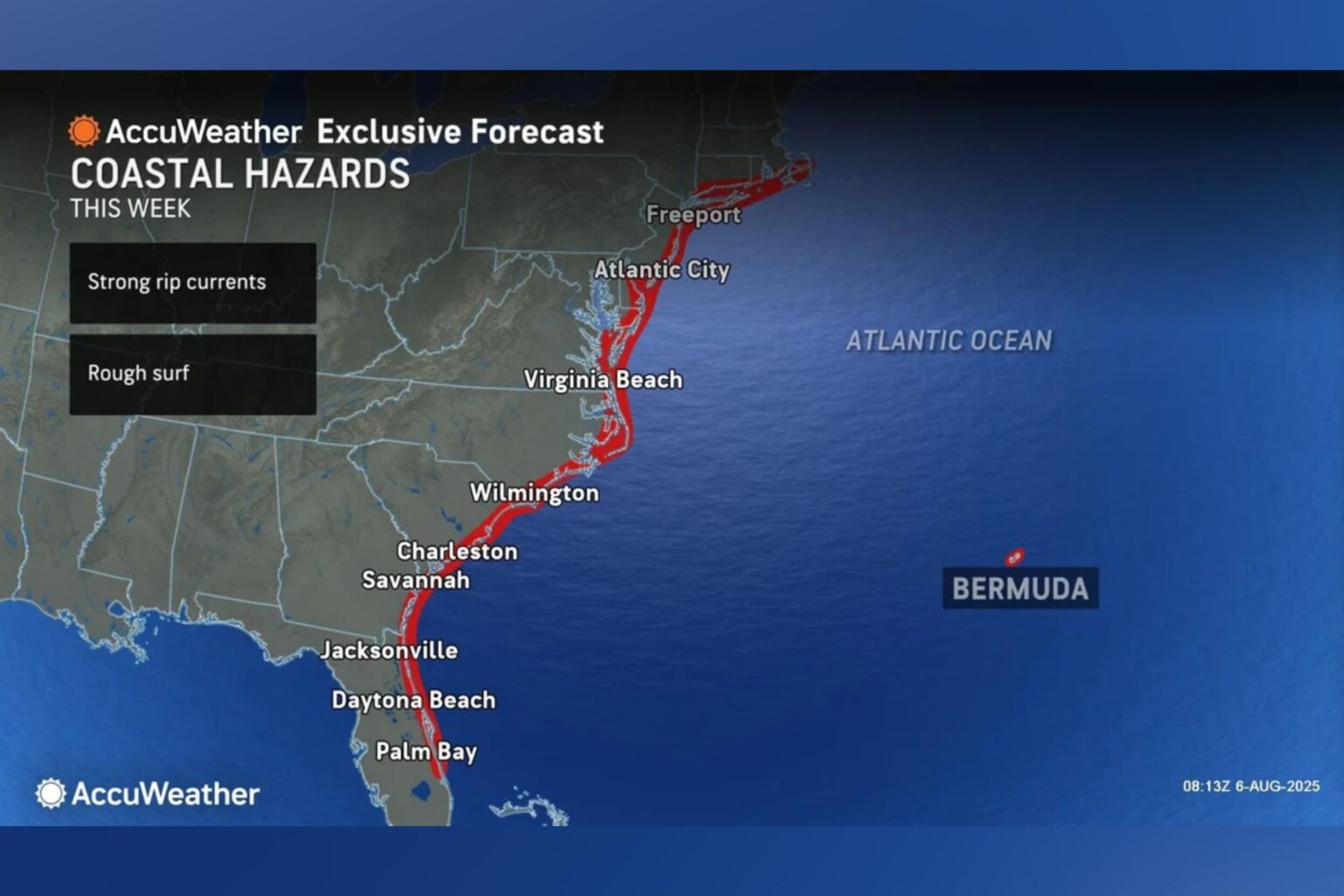Millions across at least 12 U.S. states were facing strong rip currents and rough surf this week, according to forecasters, as Tropical Storm Dexter continued to track east-northeast across the Atlantic’s open waters.
Why It Matters
Tropical Storm Dexter is the fourth named storm of the Atlantic Hurricane season. It follows storms Andrea, Barry and Chantal. Chantal brought heavy rain and flooding to North Carolina in early July.
What To Know
Tropical Storm Dexter is moving northeast over the open Atlantic, with no direct land impacts expected. However, maritime interests may encounter higher surf and rough seas through Saturday, AccuWeather said. Alongside a strengthening high pressure over the Northeast, Dexter will increase the risk of rip currents along East Coast beaches throughout the week.
A forecast map provided to Newsweek by AccuWeather showed that the majority of the East Coast could see strong rip currents and rough surf this week, from Florida all the way north to Massachusetts.
On Monday, Newsweek reported that authorities had advised thousands of beachgoers in North Carolina to exercise caution when entering the water at beaches north of Cape Hatteras due to hazardous ocean conditions.
National Weather Service meteorologist Olivia Cahill told Newsweek at the time that northeasterly winds from Tropical Storm Dexter, swirling farther out in the Atlantic, generated powerful waves and life-threatening rip currents.
In its most recent public advisory for Tropical Storm Dexter, the National Hurricane Center (NHC) said the system was moving east-northeast at around 13 miles per hour, and this motion was expected to continue “with some increase in forward speed” over the coming days.
“Strengthening is forecast during the next 48 hours while the system becomes an extratropical cyclone,” the agency said.
This is a cyclone for which the primary energy source results from the temperature contrast between warm and cold air masses, according to the NHC.
What People Are Saying
AccuWeather lead hurricane expert Alex DaSilva said, in an advisory shared with Newsweek: “Be vigilant for rough surf and rip currents at Atlantic beaches this week from Florida to New England. Dexter will continue to churn up the surf as it pushes away from the U.S. High pressure will build over the Northeast starting Wednesday. An onshore flow will keep the rip current risk moderate to high at times through the end of the week. Look for beaches with lifeguards on duty this week.”
What Happens Next
The Atlantic hurricane season runs from June through November. The eastern Pacific hurricane season began on May 15 and lasts until November 30.
The NHC says that August and September are typically the busiest months of the Atlantic season.
Read the full article here

